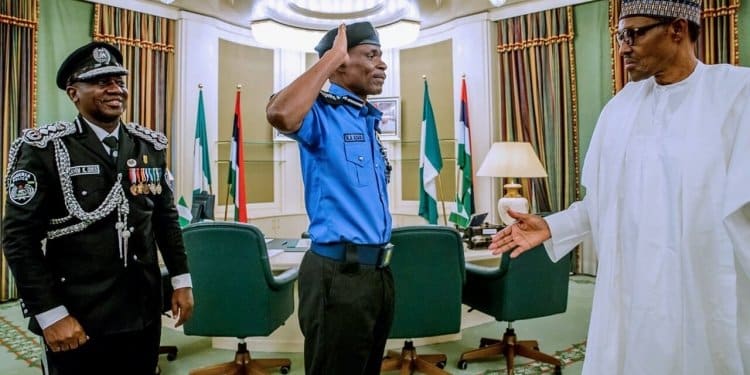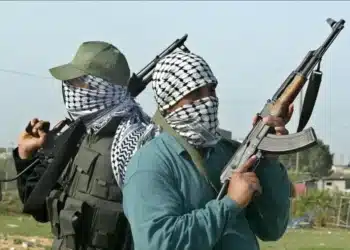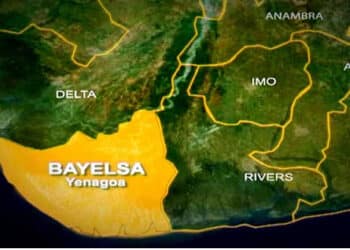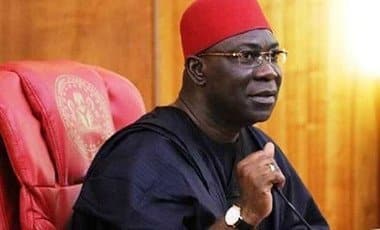NIGERIA’s President Muhammadu Buhari on Friday said the ministry of police affair was re-introduced in a bid to tackle security issues in the country.
“Working with the State governments also, we intend to improve the equipping of the police force with advanced technology and equipment that can facilitate their work,” Buhari told traditional rulers from the North led by His Eminence, Alhaji Muhammadu Sa’ad Abubakar III at the Presidential Villa, Abuja.
“To drive this, I recently created a full-fledged Ministry of Police Affairs.”
Buhari at the beginning of his first administration in 2015 merged the ministry of police affairs with the ministry of interior among others.
The re-introduced the Ministry of Police Affairs is headed by Maigarai Dingyadi.
Nigerians, however, criticized the president additional portfolio demanding the difference in duties of the two ministries.
Buhari said the creation of the new ministry will address the security issues in Nigeria.
He said the Ministry of Police Affairs was re-introduced to drive the new initiative of ensuring proper provision of security for lives and property, with proactive intelligence gathering to nip crimes in the bud before they escalate.
“I have decided to meet with Your Highnesses to assure you that the government is determined to tackle and deal decisively with all security challenges facing us as a nation,” Buhari said.
“This consultation, therefore, is to engage you, our royal fathers, so that, collectively, we can arrive at solutions to any and all security problems in the country.”
The president also noted that the entire structure of the Nigerian Police Force is being overhauled, re-positioned and primed with modern technological gadgets to meet rising challenges across the nation.
He said the ongoing reform of the police will include recruitment of more hands, cultivation of stronger local intelligence and networking with communities, traditional rulers and adequate training.
Buhari said CCTVs will be installed on highways and other strategic locations so that activities in some hidden places can be exposed, more effectively monitored and open to actionable interventions.










